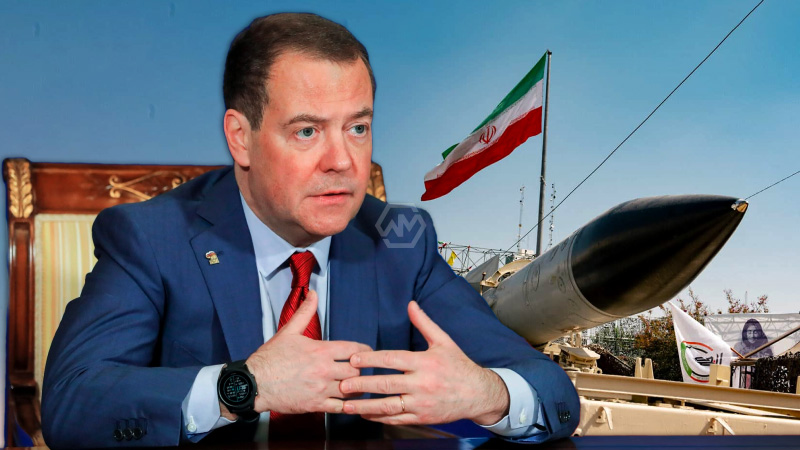- Russia’s Dmitry Medvedev claims multiple nations are willing to provide nuclear warheads to Iran after US-Israeli strikes.
- The US targeted Iran’s nuclear sites in Fordow, Natanz, and Isfahan, escalating fears of regional war.
- PM Narendra Modi held a 45-minute call with Iranian President Masoud Pezeshkian, stressing peace and diplomacy.
In a dramatic shift in the West Asian security landscape, former Russian President Dmitry Medvedev claimed that “a number of countries” are ready to directly supply nuclear warheads to Iran.
Reacting swiftly to the crisis, Indian Prime Minister Narendra Modi held a telephonic conversation with Iranian President Masoud Pezeshkian, where both leaders discussed the deteriorating regional situation.
After US Strikes Iran’s Nuclear Sites, Medvedev Alleges Nations Ready to Arm Tehran; Modi Engages with Iranian President
The coordinated airstrikes by the United States and Israel targeted Iran’s most secure nuclear facilities — Fordow, Natanz, and Isfahan — and have reignited concerns about a broader conflict in West Asia. These precision strikes, reportedly authorized under the label of preemptive self-defense, have drawn sharp criticism from multiple global actors and could prompt retaliatory action by Iran.
In his social media statement, Dmitry Medvedev, currently serving as Deputy Chairman of Russia’s Security Council, claimed the US action could open the door for a nuclear-armed Iran. His assertion that some countries are prepared to transfer nuclear weapons directly to Tehran represents a significant escalation in rhetoric, with far-reaching implications for non-proliferation efforts.
Meanwhile, India’s foreign policy approach stands out for its neutrality and emphasis on peace. During the 45-minute call with President Masoud Pezeshkian, PM Modi highlighted the need for regional stability, urging all parties to avoid provocations. India’s growing diplomatic engagement in West Asia underlines its emerging role as a global mediator.
While the world watches anxiously, the episode serves as a reminder of the fragile balance in the Middle East. Experts believe that unless diplomatic channels are urgently revived, a multi-front conflict involving Iran, Israel, the US, and their respective allies could become inevitable.
India’s timely diplomatic outreach emphasizes that amid nuclear rhetoric and missile strikes, only dialogue and restraint can prevent the region from plunging into chaos.
“Peace cannot be kept by force; it can only be achieved by understanding.” — Albert Einstein



